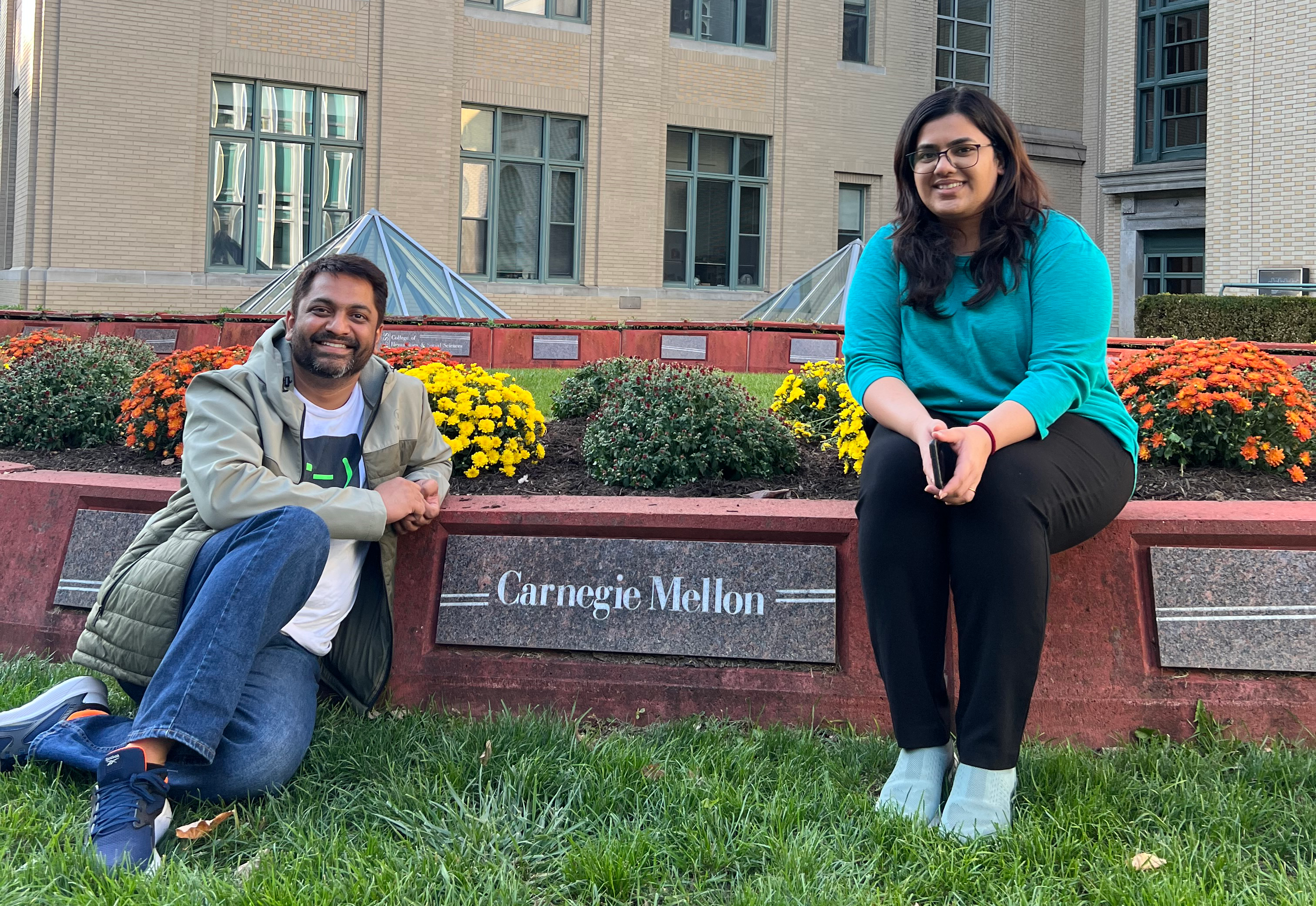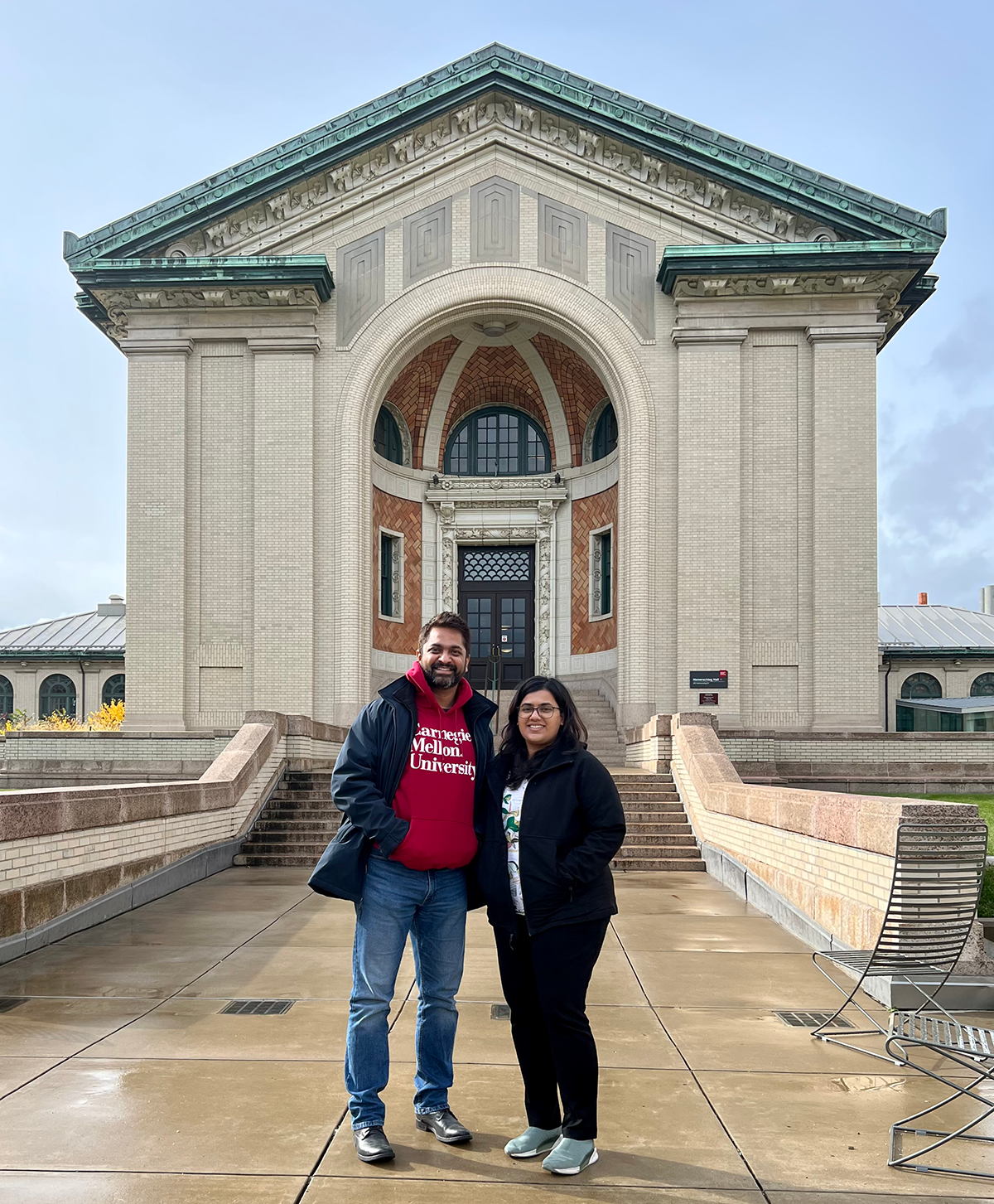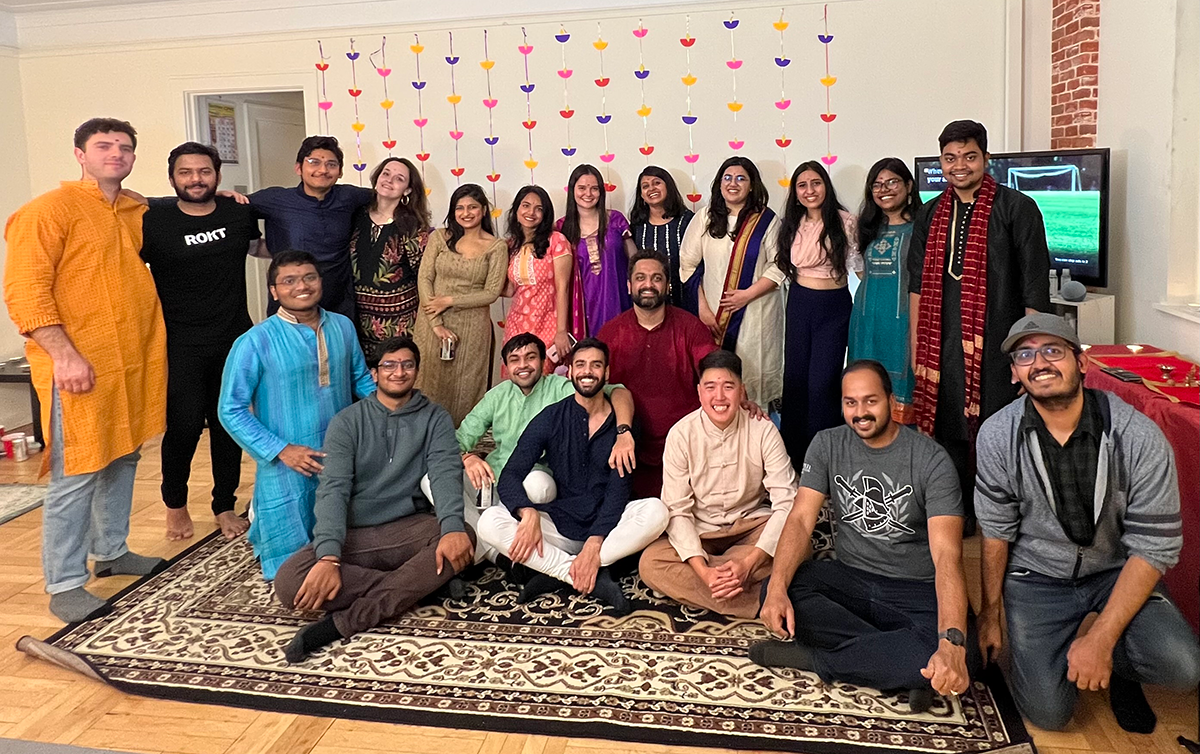
Kulkarni and Karve Marry Education, Life at CEE
Tanay Kulkarni and Devashri Karve are a unique pair at CEE—a married couple going through the program together. Originally from the small town of Amravati in central India, they’ve known each other since childhood.
“After getting our bachelor's degrees in civil engineering from Amravati University, we both graduated from Pune University with master's degrees in hydraulics and hydrological engineering,” the couple says, adding that they jokingly introduce themselves as a pair of "Digital Twins.”
They maintain that their lifelong bond has led to interests that are in alignment. But it’s not all similar. Kulkarni’s “proactive” style and Karve’s “careful and patient” demeanor keep the relationship in balance.
Their engineering and entrepreneurial background led them to build dtkhydronet.com where they work as water engineering consultants. As a team, they’ve helped to develop and create over 25,000 miles of water networks through infrastructure projects—securing the delivery of clean water to millions of people.
But as they grew professionally and built a multi award-winning company, they noted that there was much more they needed to learn, eventually leading them to CEE.
 “We needed an education that would [show us how to best] solve the water-related issues faced by utilities globally. [We also wanted to become] instrumental in adaptive asset management, successful supply & demand management, and leak identification frameworks for improved infrastructure management, performance, and sustainability.”
“We needed an education that would [show us how to best] solve the water-related issues faced by utilities globally. [We also wanted to become] instrumental in adaptive asset management, successful supply & demand management, and leak identification frameworks for improved infrastructure management, performance, and sustainability.”
Kulkarni and Karve chose to attend CEE because they knew it would provide an education that went beyond classroom learning. CEE’s rigorous professional preparation, hands-on training, and mentorship have allowed to couple to grow and create innovative solutions to problems—especially those involving data science, AI applications, and cutting-edge infrastructure technologies.
Being in the same classes, at the same time allows Kulkarni and Karve to continue classwork and conversations beyond campus time. “This also aids in our mutual exploration of one another's viewpoints and experiences,” they state.
Working separately on projects with fellow classmates has also proven to be beneficial as they end up getting in-depth knowledge of two projects—not just one. “It’s helped us to grasp unique challenges and respect each other's privacy, especially while working on projects that require individual input.”
 Through CEE, they’ve also expanded their knowledge of other cultures, bonding with friends from Columbia, Zimbabwe, Mexico, Thailand, Indonesia, Vietnam, the Netherlands, France, Venezuela, China, the United States, and India.
Through CEE, they’ve also expanded their knowledge of other cultures, bonding with friends from Columbia, Zimbabwe, Mexico, Thailand, Indonesia, Vietnam, the Netherlands, France, Venezuela, China, the United States, and India.
Kulkarni and Karve believe that earning their degrees together has added a new level to their relationship. “It's a wonderful pleasure to learn, and it's even better when you get to do it with your significant other!”